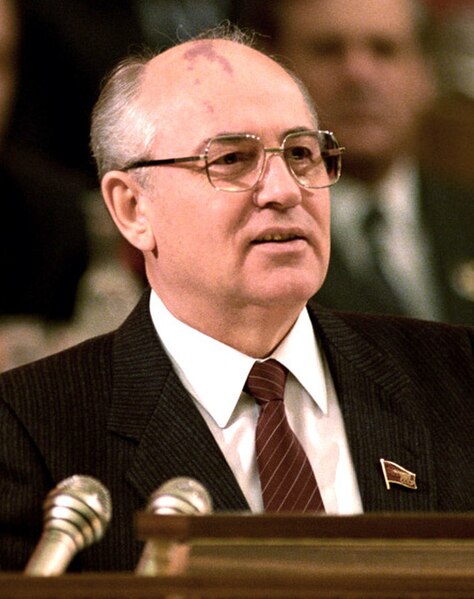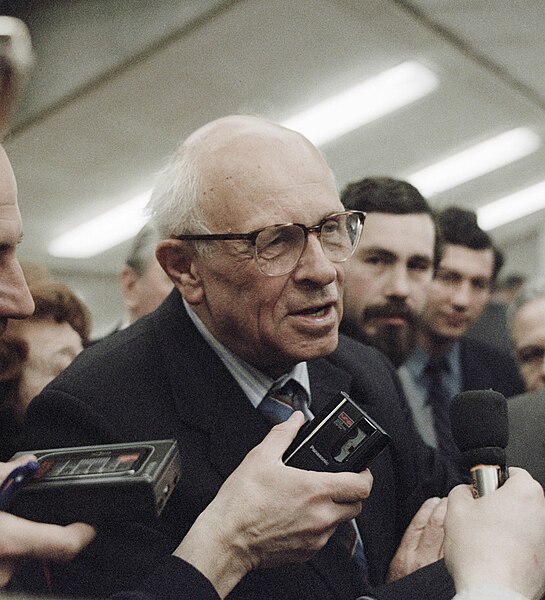Mikhail Sergeyevich Gorbachev was a Soviet and Russian politician who served as the last leader of the Soviet Union from 1985 to the country's dissolution in 1991. He served as General Secretary of the Communist Party of the Soviet Union from 1985 and additionally as head of state beginning in 1988, as Chairman of the Presidium of the Supreme Soviet from 1988 to 1989, Chairman of the Supreme Soviet from 1989 to 1990 and the only President of the Soviet Union from 1990 to 1991. Ideologically, Gorbachev initially adhered to Marxism–Leninism but moved towards social democracy by the early 1990s.
Gorbachev in 1987
Gorbachev and his Ukrainian maternal grandparents, late 1930s
Gorbachev on a visit to East Germany in 1966
Part of the Great Stavropol Canal constructed under Gorbachev's regional leadership
Dissolution of the Soviet Union
The Union of Soviet Socialist Republics (USSR) was dissolved on 26 December 1991 by Declaration № 142-Н of the Soviet of the Republics of the Supreme Soviet of the Soviet Union, formally establishing the dissolution of the Soviet Union as a sovereign state and subject of international law. It also brought an end to the Soviet Union's federal government and General Secretary Mikhail Gorbachev's effort to reform the Soviet political and economic system in an attempt to stop a period of political stalemate and economic backslide. The Soviet Union had experienced internal stagnation and ethnic separatism. Although highly centralized until its final years, the country was made up of 15 top-level republics that served as the homelands for different ethnicities. By late 1991, amid a catastrophic political crisis, with several republics already departing the Union and the waning of centralized power, the leaders of three of its founding members, the Russian, Belorussian, and Ukrainian SSRs, declared that the Soviet Union no longer existed. Eight more republics joined their declaration shortly thereafter. Gorbachev resigned on 25 December 1991 and what was left of the Soviet parliament voted to end itself.

Mikhail Gorbachev (1931–2022) in 1987
Environmental concerns over the Metsamor Nuclear Power Plant drove initial demonstrations in Yerevan.
Anti-Soviet rally of about 250,000 in Lithuania, whose Sąjūdis movement helped restore independence
Andrei Sakharov, formerly exiled to Gorky, was elected to the Congress of People's Deputies in March 1989.








